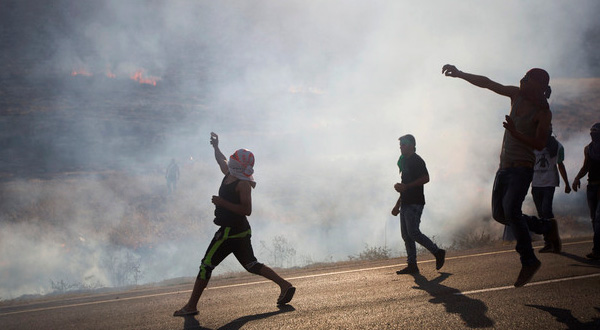GAZA: Israeli forces martyred two Palestinians, one of them a 14-year-old boy, and wounded 415 others with live fire and tear gas during protests along the Gaza border on Friday, Gaza health officials said.
Gaza medical officials said the boy, Yasser Abu Al-Naja and Mohammad Al-Hamayda, 24, were hit by live bullets. They added that four other men wounded by live fire were in critical condition.
The Israeli military said in a statement that troops had used “large amounts of riot dispersal means”. In some cases, when the non-lethal means proved ineffective, live fire was used “in accordance with the standard operating procedures”.
It said thousands of Palestinians had “participated in extremely violent riots”, hurling a grenade and rocks at troops and the border fence and burning tires.
It said the reported death of the boy would be investigated and that legal action could be taken, if appropriate.
Gaza officials say Israeli troops have martyred at least 135 people since the weekly protests began on March 30.
Palestinians say the protests are a popular outpouring of rage against Israel by refugees demanding the right to return to homes their families fled or were driven from on Israel’s founding 70 years ago.
Israel says the demonstrations are organized by Hamas that controls the Gaza Strip and denies Israel’s right to exist. Israel says Hamas has intentionally provoked the violence, a charge Hamas denies.
Tens of thousands took part when the protests were launched at several locations along the Gaza border but the number has dropped significantly in the past few weeks and only a few thousand have participated more recently.
Israel’s deadly tactics have drawn international condemnation. But support has come from its main ally, the United States, which like Israel, has cast blame on Hamas.
Israel has accused Hamas of stoking the violence in an attempt to deflect domestic opinion from Gaza’s energy shortages and faltering economy.
Israel maintains a naval blockade of Gaza and tight restrictions on the movement of people and goods at its land borders. Egypt has also kept its own Gaza frontier largely closed. Both countries cite security concerns for the measures, which have deepened economic hardship.





